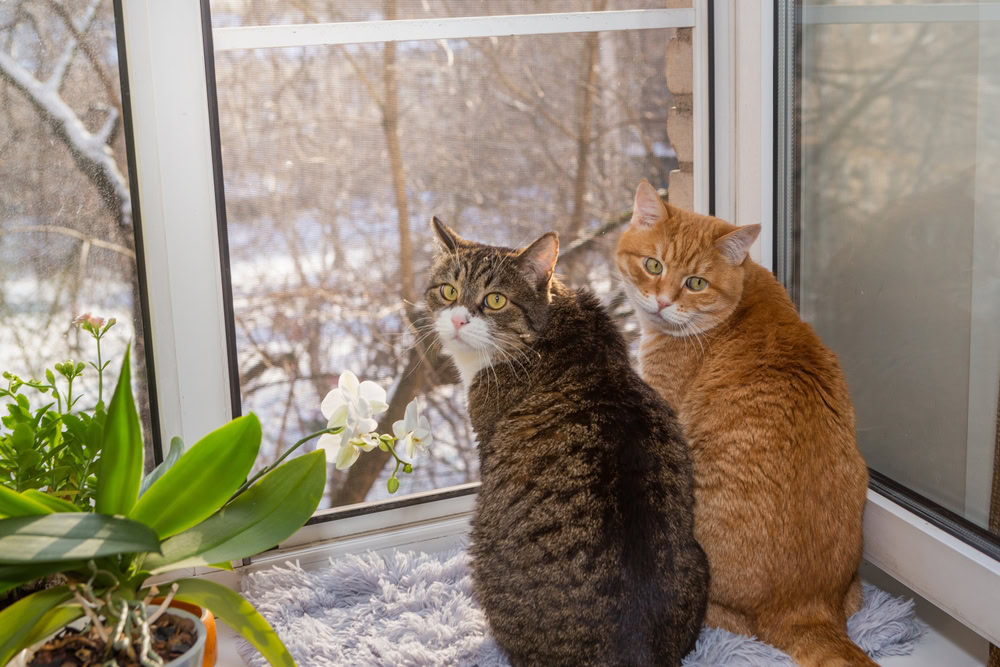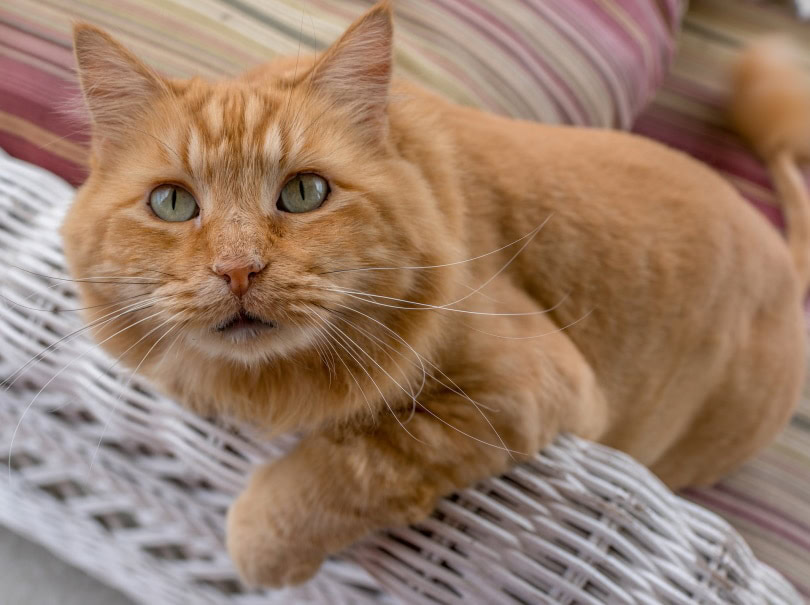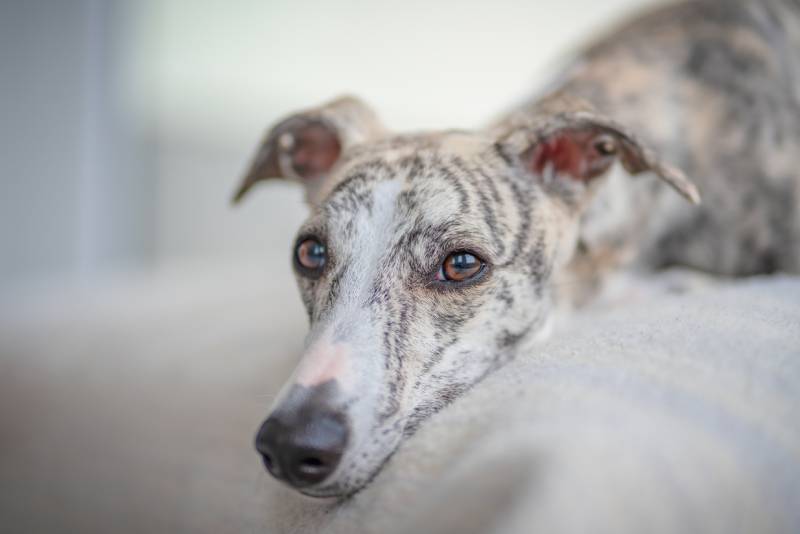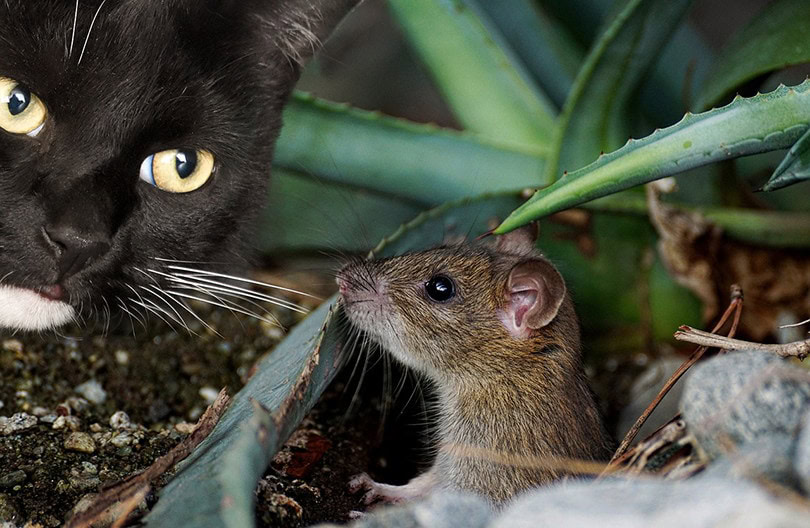It’s not unusual to spend an inordinate amount of time trying to determine the hidden meanings behind some of the inscrutable behaviors displayed by our feline family members. One thing that often affects how we interpret those behaviors is our own human experience and emotions. Although this can help us relate to our cats, it can also lead to misinterpretation and miscommunication.
We know that cats are intelligent creatures, capable of problem-solving, emotional attachment, and complex thinking. However, we often make assumptions about their actions and motivations based on how we see the world, assigning concepts and emotions that simply do not apply to the feline psyche. Although it is important to try to understand our cats, it is perhaps more important not to misunderstand them. We might think our cats’ actions represent emotions like jealousy, guilt, revenge, pride, or embarrassment, but in reality, these are human constructs that do not apply to feline behavior. This does not mean that cats are devoid of emotion, it simply means that theirs are somewhat different from our own.

Empathy, Overthinking, and Anthropomorphism
The sole purpose of the brain is to keep the body alive. For most animal species, this is limited to unconscious functions like respiration, digestion, and cardiac function, and conscious behaviors like hunting, escaping, mating, and communication. As animals become more complex, so too do these behaviors, particularly those relating to communication. For almost all animals, these actions are still geared toward the survival of the individual and the species.
As humans have evolved, our intelligence, including emotional intelligence, has increased, along with the size and complexity of our brains. Due to the relative safety of our modern lifestyles, the brain power that was previously geared towards survival techniques has been redirected towards critical thinking, philosophy, relationships, psychology, and science. The way we relate to one another is no longer purely based on survival and the continuation of the species, but about love, friendships, enemies, betrayals, deception, envy, hatred, or desire. Our thoughts and emotions are so complex that we make careers out of analyzing them, and spend hours just thinking about thoughts!
Empathy – the ability to share and understand another person’s feelings or perspective – is something seen in humans and a handful of other complex animal species, such as elephants and some primates. It improves our communication, social cohesion, and relationships. In our desire to relate to other animals, we often try to empathize with them, transferring our own emotions onto different species. This is known as anthropomorphism. Although empathy towards animals is what has led to bonding with pets, improving welfare, and protecting them from cruelty, anthropomorphism can sometimes lead us to misinterpret their behavior and overcomplicate our interactions with them.
Of course, it has also led to the creation of billions of films, memes, and video clips!
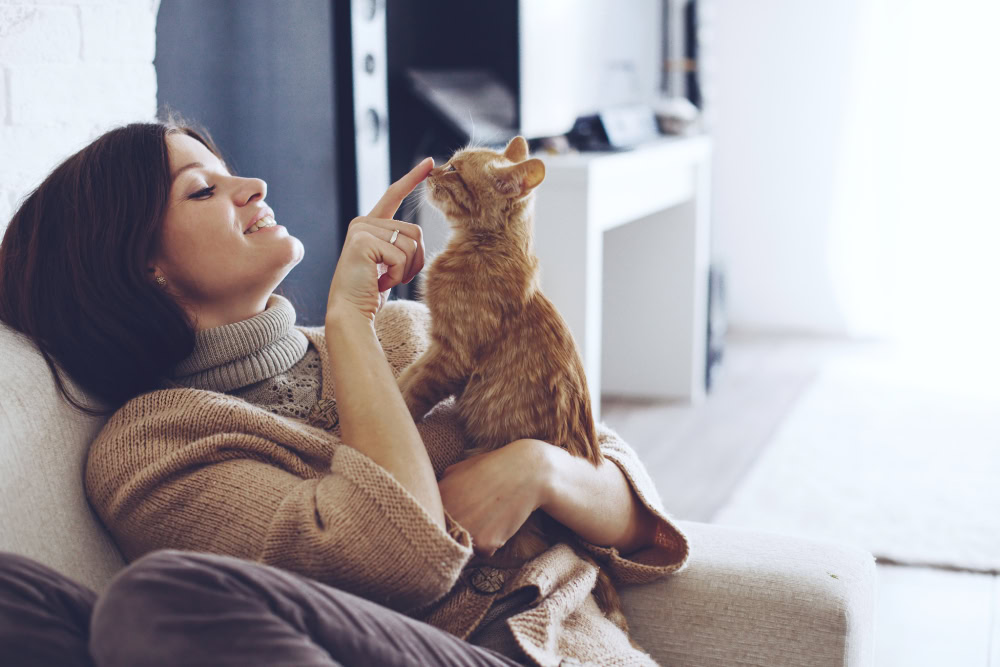
Emotional Domestication
Over thousands of years of domestication, cats have inserted themselves into our lives, providing us with warmth, companionship, and snuggles in exchange for food and protection. An essential part of this process has been emotional domestication, whereby the feline instinct of ‘fight or flight’ has been diminished in order to accommodate a relationship with humans. There is no doubt that cats form attachments to their human caregivers, but whether or not that attachment is the equivalent of human love is up for debate.
Domestic cats have demonstrated a clear ability to understand human behavior to a certain degree, and even try to communicate with us vocally, but there is still plenty of misinterpretation between the two. While our cat may feel terrified by a loud display of excitement from us, our feelings may be hurt when we are seemingly ignored by our beloved companion, and in both cases, the message has been misunderstood. But because our cats do show signs of emotional attachment and affection, anthropomorphism seems inevitable.
It’s Not Fair
Another major difference between humans and cats is how we humans view our position in the world in relation to one another, comparing our actions, appearance, performance, possessions, and treatment. This is where the concept of ‘fairness’ comes from. Cats are not preoccupied with whether or not the cat next door received more food than they did; they are simply concerned with whether or not they are fed. The cat may want what the other cat has, but this is not the same as being jealous. They are driven by emotions and instincts of survival – ie. “I want the food because I need food to live,” rather than comparing themselves to others – ie. “It’s not fair that he gets food but I don’t.”
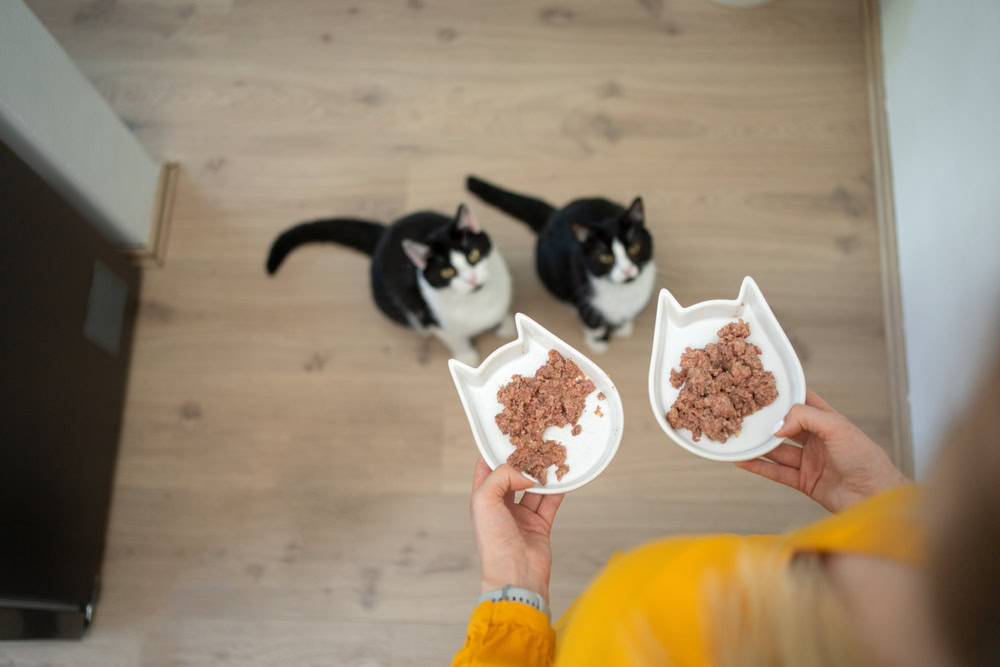
Do Cats Get Jealous?
Finally, we are getting to our answer!
Complex emotions like jealousy, guilt, or embarrassment are all based on how we feel in relation to others and how others may interpret our actions. They are concepts we learn, not ones we are born with; if we are not taught about them, we won’t experience them.
Some cats hate the harsh sound of human laughter, and so we interpret their reaction as embarrassment. Others cringe when we confront them about stealing food or peeing on the carpet, and so we think they feel guilty. And when our cat turns away because we are showing affection to another pet or family member, we assume they must be feeling jealous. These are all classic examples of anthropomorphism.
Cats do not poop in our shoes for revenge, or pee on the bed to punish us. In order for us to properly understand our cat’s needs and behaviors, we need to stop looking for ambiguous emotional motivations and focus on the simpler explanations of action-reaction. Cats are not underhanded, devious, or malicious. If they are angry, they will growl, hiss, bite, or scratch, not poop on your pillow. If they want attention, they will meow until they get it. The good news is that when we remove the melodrama, a lot of feline behavioral issues become much easier to approach.
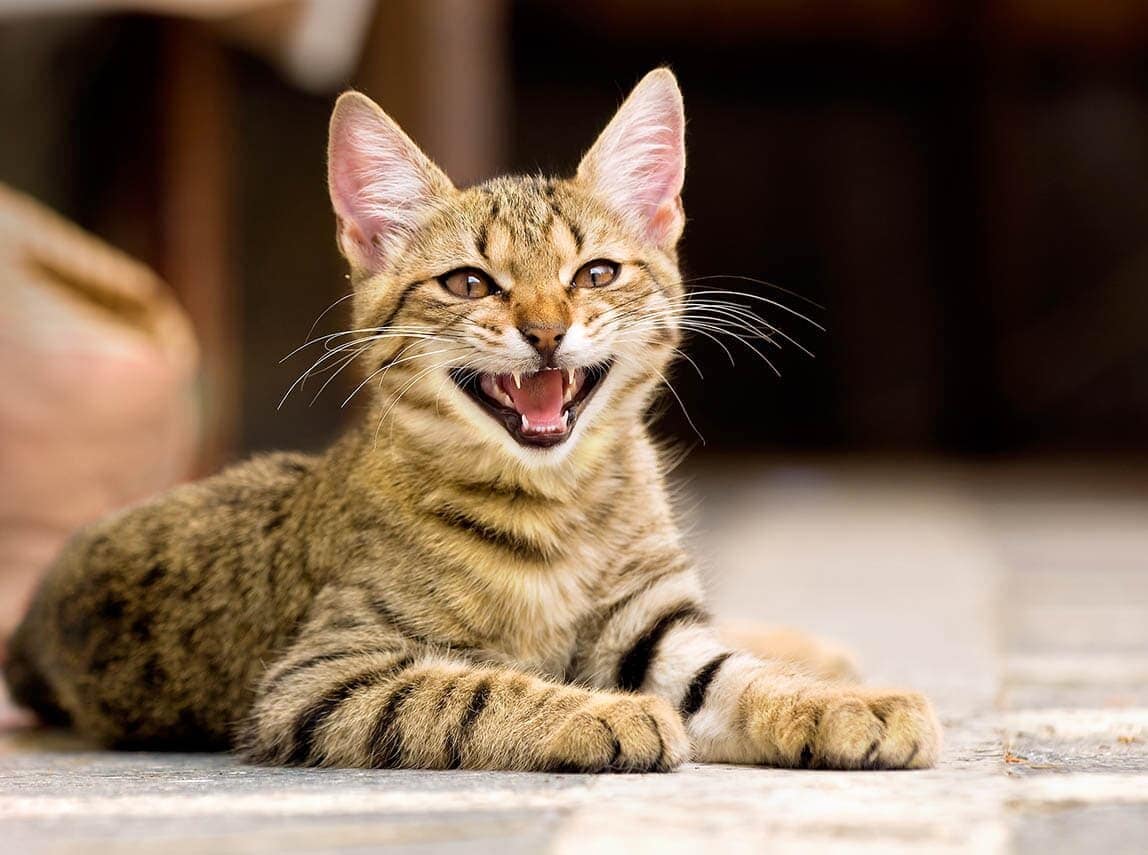
More Anthropomorphisms
Attaching human emotions and interpretations to other species can sometimes be a good thing, as it can lead to stronger bonds with our pets and improved treatment of animals. However, when we try to assign human motivations to cats, it can often lead to problems. Here is the truth about some common anthropomorphisms.
| Anthropomorphism | Reality | What to do about it |
| My cat is jealous of my partner/family member/other pets. | Your cat likes continuity and may be possessive of you. | Don’t overcompensate, but be sure to provide them with the regular amount of attention/affection you normally would. |
| All female cats should get to experience motherhood. | Cats mate and reproduce because they are hardwired to do so. They nurture their young, then move on. | Spay or neuter your cats! This anthropomorphism leads to millions of unwanted kittens each year. |
| My cat is pooping in my shoes because he/she is angry. | Cats poop outside the litter box for many different reasons. Your shoes may smell familiar and calming. | Arrange a check-up with your vet, and assess your litter box cleanliness, placement, material, and number. |
| My cat scratches my curtains for attention. | Your cat scratches vertical surfaces to keep their claws healthy and scent mark their territory. | Provide a range of vertical scratching surfaces to redirect this natural behavior. |
| My cat gets embarrassed if we laugh at them. | Your cat doesn’t enjoy the sound of laughter. | Don’t stress, but perhaps reevaluate the tone of your laughter!
Cats groom their genitals in front of strangers; embarrassment is not in their wheelhouse. |
| My cat loves me. | Your cat is closely attached to you, feels safe and secure with you, and prefers your company to the company of others or being alone. | No notes – enjoy! |

Final Thoughts
We may have taken the long way round, but understanding the importance of anthropomorphization and how it impacts our interpretation of animal behavior is essential for us to recognize which emotions our cats may experience, and which emotions are the result of human design. Although cats may sometimes show behaviors that may look like jealousy, their motivations are usually more straightforward. Your cat may want something that someone else has, but they want it because they want it, not because they are jealous.
Our ability to empathize with animals is an admirable trait, and one that should be encouraged. However, we must be careful not to misconstrue feline behavior, as it may lead to confusion for them and frustration for us.
See also:
Featured Image Credit: Okssi, Shutterstock
